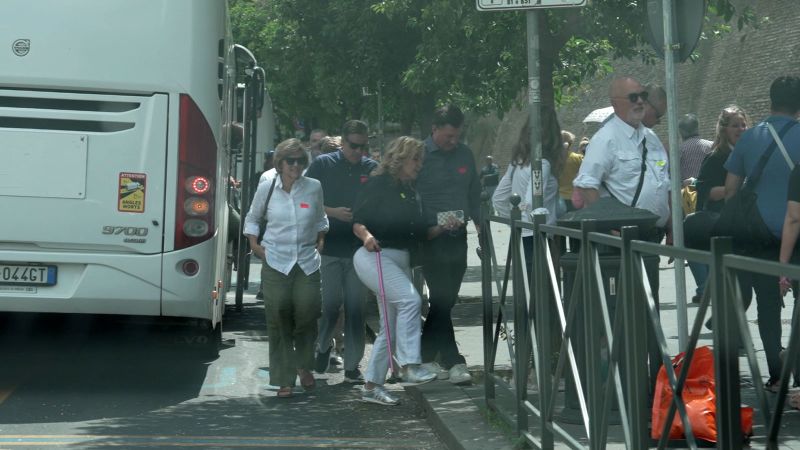In a recent event concerning American state officials, the convergence of government operations and corporate lobbying has raised eyebrows. Last month, as the world mourned the passing of Pope Francis, a group of state attorneys general from the United States found themselves in Rome—not for a somber memorial, but to attend meetings initiated by the Attorney General Alliance (AGA). This organization is funded by various corporations, raising questions about potential conflicts of interest and ethical implications within the legal framework.
Among the distinguished participants were attorneys general Treg Taylor of Alaska, Liz Murrill of Louisiana, and Raúl Labrador of Idaho. Instead of solemn duties, they were seen snapping photos and mingling in a luxurious environment, greatly facilitated by corporate interests. The allure of free trips can be tempting, and these officials were afforded an experience in opulent accommodation, escorted by lobbyists and lawyers representing the same companies whose interests they might later regulate.
The AGA has been noteworthy for creating opportunities for corporate entities to gain direct access to these officials. CNN reported that recent trips of this nature often include high-level meetings to discuss pressing issues, but the mixing of business and pleasure—such as sight-seeing and dining in luxury—opens the door to ethical scrutiny. Critics argue that this relationship breeds a fundamental distrust in the legal system, as attorneys general balance their duties to enforce laws against powerful entities while mingling in lavish settings fueled by corporate donations.
Legal ethics professor Stephen Gillers at NYU expressed concerns, suggesting that these luxury trips could harm the credibility of the attorney general’s office. He questioned why state officials could not conduct their meetings in less extravagant settings. The AGA defended their Rome delegation, indicating that the trip incorporated discussions on human trafficking and included accredited educational sessions. However, the optics do not favor public trust, as it appears that attorneys general are leveraging their positions for personal benefits while corporations are directly courting their influence.
A detailed itinerary of the trip revealed that mornings were reserved for serious discussions on significant topics like cryptocurrency regulation and human trafficking. However, these work sessions were juxtaposed with planned leisure activities, including tours of St. Peter’s Basilica and wine dinners. Such a schedule raises further doubts about the commitment of these officials to the pressing issues they ostensibly discussed.
Staying in the five-star Rome Cavalieri hotel, which proudly touts itself as a pinnacle of luxury, AGA funded business-class flights for the attorneys general and their guests, thus amplifying the perception of privilege. Notably, Maryland Attorney General Anthony Brown was seen relaxing near the hotel pool, a stark contrast to his legislative responsibilities back home.
Documented payments for travel indicate that the AGA took care of flights exceeding $14,000 for some attendees. In a broader context, the AGA has generated substantial revenue through corporate sponsorships, receiving nearly $27 million from companies between 2019 and 2023. This revenue stream, primarily comprised of corporate donations, raises questions about the implications for impartiality in law enforcement.
In previous years, the AGA has voluntarily offered varying levels of access and perks based on the amount contributed by corporations, creating a tiered system of influence. It has led to partnerships with firms like WilmerHale, a legal powerhouse with interests in active litigation affecting state residents. An example included interactions between Murrill and a partner from WilmerHale, prompting inquiries about potential conflicts of interest regarding ongoing legal challenges against corporations like BlackRock.
Within this network of officials and corporate representatives, discussions surrounding high-stakes lawsuits occur, prompting a values-based assessment of how state government officials perceive their roles in maintaining public trust. Despite the criticisms, members of the AGA—such as Tania Maestas—assert that lawful business travel should not be conflated with unethical behavior.
The interaction between state attorneys general and corporate representatives during such trips brings to light the significant challenges in establishing a clearly defined boundary between professional duties and private interests. While private companies pursuing legislative influence is understandable, the responsibility ultimately falls on the officials who accept these arrangements and must navigate the potential repercussions of their decisions. The narrative paints a concerning picture of how the sanctity of legal office might be jeopardized if proper measures are not taken to ensure transparency and accountability in the face of corporate engagements.



